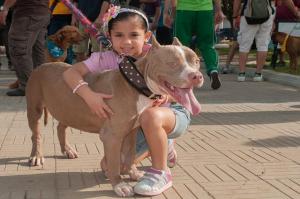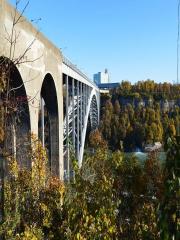 Hilary Swank, the Oscar-winning actress, has recently focused her energy on a more monumental cause; animal welfare.
Hilary Swank, the Oscar-winning actress, has recently focused her energy on a more monumental cause; animal welfare.
Last month, Swank visited Romania and got involved in a number of Vier Pfoten projects aiming to “connect rescue animals with institutionalized people.”
Bucharest, Romania’s capital, teems with over 30,000 stray dogs. Last year, a law initiated a program that rounds up the dogs and places them in a shelter for 30 days. If they are not adopted in time, they are euthanized. Vier Pfoten is one of several non-profits working to alter the effects of the law.
Swank, inspired by the organization’s efforts, has brought the battle to the United States in the form of ‘Hilaroo,’ a similar organization that will help children and rescued animals.
“I believe that is so healing to these kids who don’t trust people anymore,” she said. “The unconditional love of an animal is very healing and teaches them about not just unconditional love but about a relationship, about responsibility, about anger management.
“I believe in a ‘no-kill’ policy. Hopefully we are getting to a place where we have ‘no-kill’ universally and just a more caring attitude in general to all animals.”

